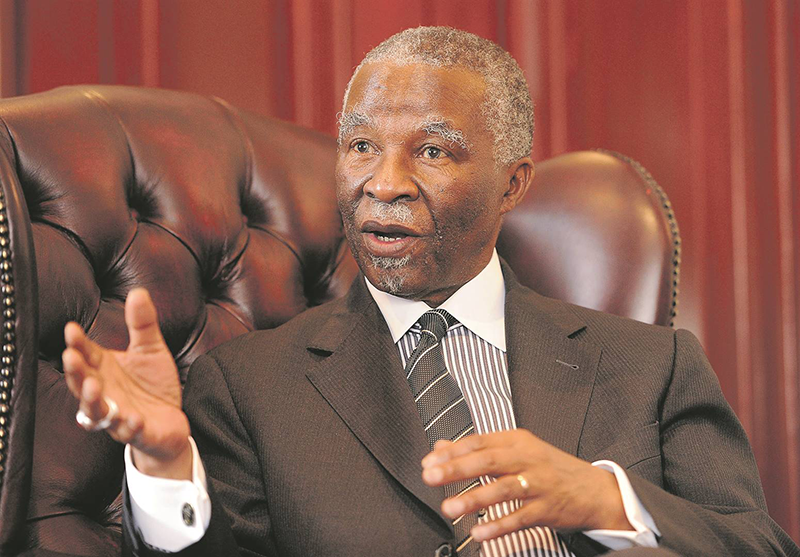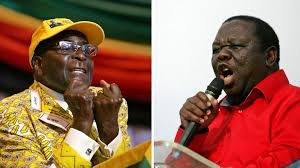- Diaspora
- No Comment
MBEKI: Xenophobic attacks in SA were orchestrated by Zimbabwe opposition

JOHANNESBURG: South Africa’s former President Thabo Mbeki has suggested the deadly 2008 xenophobic attacks in Alexandra were part of a planned operation to drive Zimbabweans back home to vote out Robert Mugabe.
Mbeki made the startling revelations this week during a conversation with students at the University of South Africa, in Pretoria.
“Historically, the African community here has never been xenophobic about other Africans. So, 2008 all manner of trouble breaks out in Alexandra Township in Johannesburg, attacks on these foreigners, particularly Zimbabweans. Then it spread elsewhere. Xenophobia, Afrophobia,” said Mbeki.
“So, I say when I saw that, as President, this is not Alexandra township. Alexandra, for decades, has had Zimbabweans and Mozambicans, and so on. There was never ever this kind of conflict.”
Mugabe faced his toughest electoral challenge in 2008 from rival Morgan Tsvangirai of the opposition MDC party at the height of the country’s economic crisis. Hyperinflation saw the central bank introduce 10 million ‘bearer cheques’ where were worth about Us$1.35 on the black market.

Mugabe lost the first round of the Presidential ballot in March 2008 with results announcement delayed for more than a month.
A second round was called for June 2008 but Tsvangirai withdrew accusing Mugabe and Zanu PF of unleashing a bloody crackdown against opposition supporters.
The xenophobic in South Africa hit in May 2008, ahead of the June run-off election in Zimbabwe.
Mbeki said there was an intelligence report which he was privy to as President at the time, that lists the people and the motives behind the attacks, adding that the document needs to be declassified.
“There’s a mistake we made as government, and that is not to declassify an intelligence document about what happened in Alexander in 2008. That thing was organised to drive the Zimbabweans out of the country back to Zimbabwe because there were elections in Zimbabwe,” he explained.
“People were being driven out; they were going to vote against Bob (Robert) Mugabe there. An Intelligence Report which has got the names and the dates and venues where people met and planned this and so on.”
“It is presented as a xenophobic attack by the people of Alex against others, it was wrong. It was organised, systematic, for reportedly political purpose. I’m saying the mistake we made, we should have this declassified, that Intelligence Report.
“It’s got the names and the dates and the venues of the meetings, which were organised in order to produce this outcome. We’ve got many, many challenges of the economy here. Unemployment, very serious problem. The economy is in crisis.”
However, a report by the International Organisation for Migration found that poor service delivery or an influx of foreigners may have played a contributing role, but blamed township politics for the xenophobic attacks.
One year after the attacks the Consortium for Refugees and Migrants in South Africa (Cormsa) warned that foreigners remained under threat of violence and that little had been done to address the causes of the attacks. The organisation complained of a lack of accountability for those responsible for public violence, insufficient investigations into the instigators and the lack of a public government inquiry
